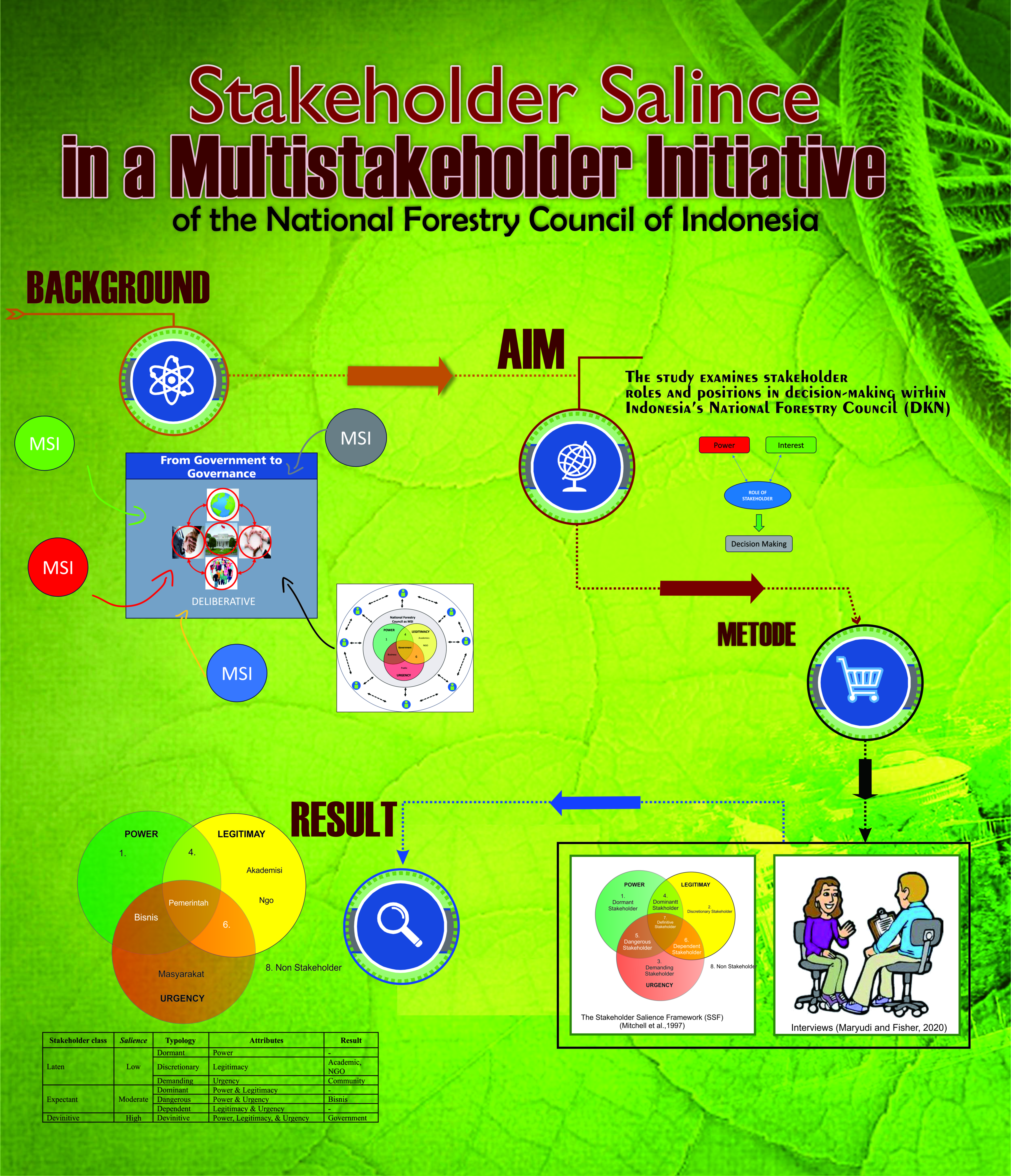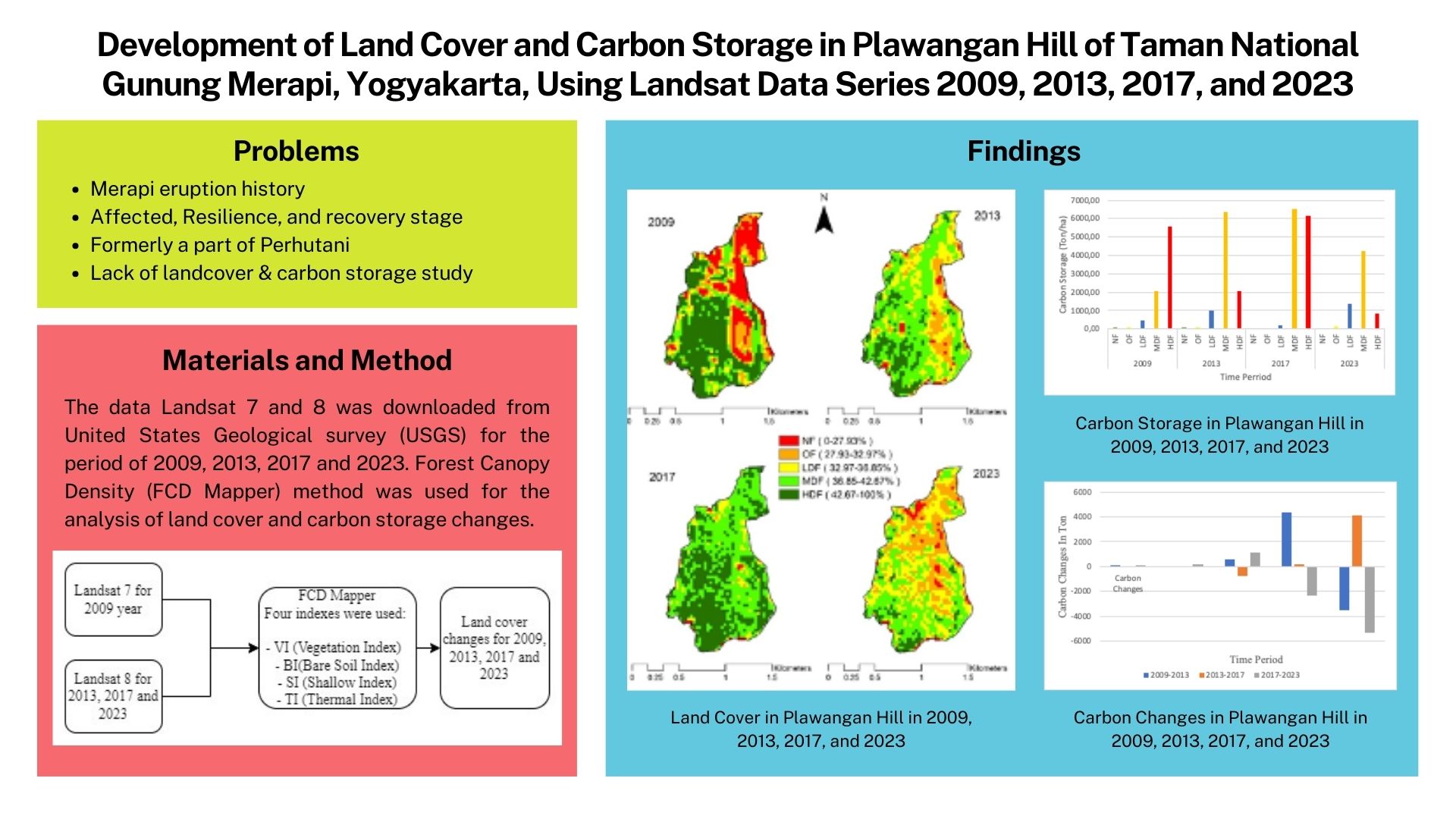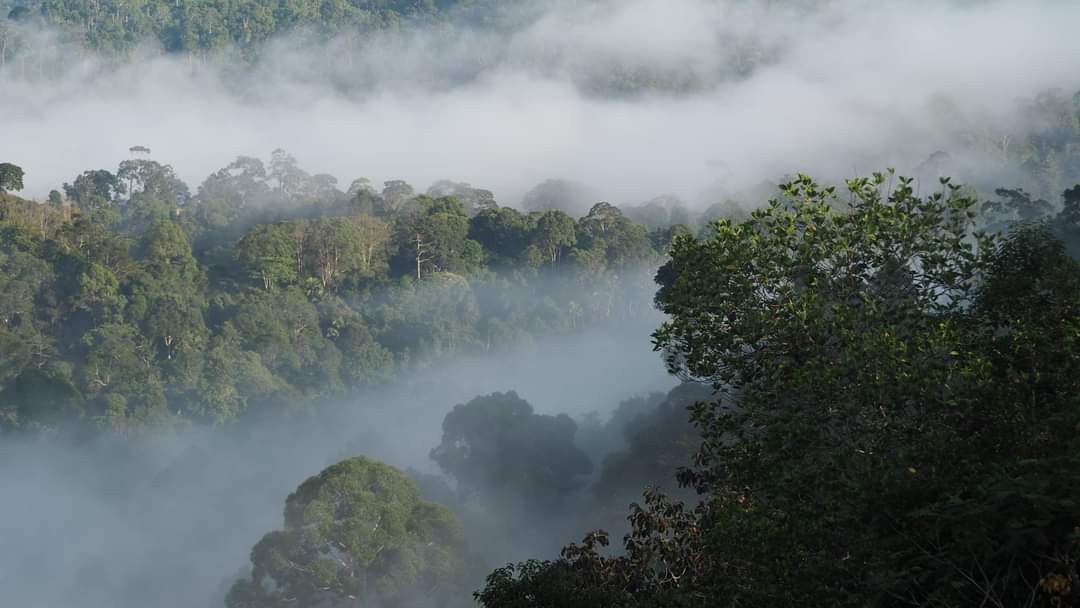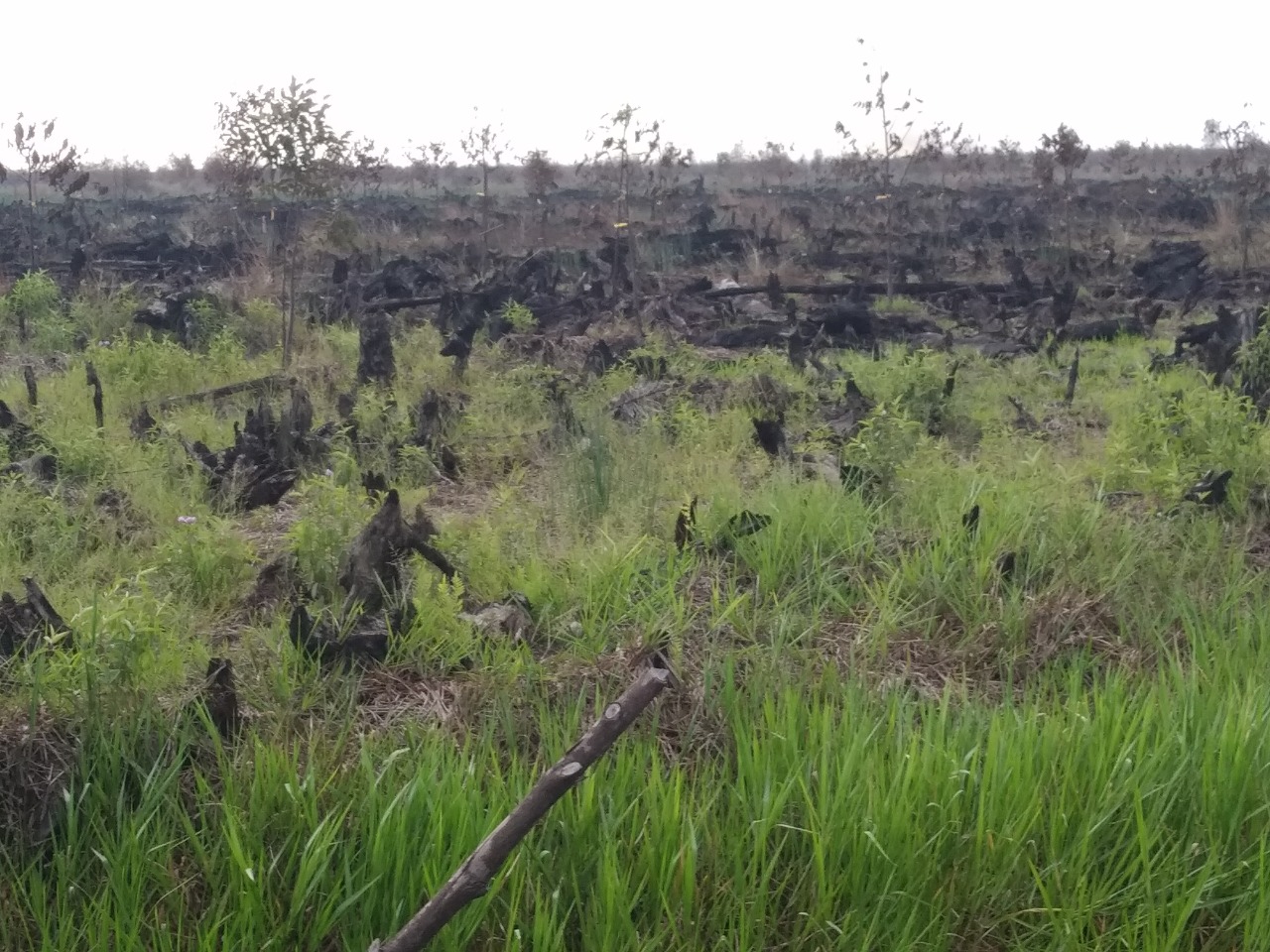Stakeholder Salience in a Multistakeholder Initiative of the National Forestry Council of Indonesia
Abstract
This study analyzes the roles and positions of stakeholders in decision-making processes within the National Forestry Council (Dewan Kehutanan Nasional, DKN), a forest-related multistakeholder platform in Indonesia. It considers stakeholders’ power, legitimacy, and urgency. The research employed a qualitative case study, centered around in-depth interviews with 27 key informants with diverse backgrounds involved in the DKN. The study found that despite being designed to facilitate democratic and inclusive decision-making, the engagement of stakeholders in the DKN is heavily dominated by powerful government actors. Several stakeholder groups, such as NGOs and academics, may actively participate in decision-making processes, but they do not meaningfully influence and capacity to determine the organizational policy directions. This is related to an imbalance in the distribution of power among stakeholders in DKN. Even though this organization promotes the principle of inclusivity, the reality is that the presence and influence of the government are still the dominant factors in determining policy directions. This study confirms the importance of the stakeholder salience analysis approach in the context of multistakeholder initiative organizations such as the DKN, which allows recognition of power dynamics and domination among stakeholders within the DKN so that decisions made truly reflect the common interests of all parties involved.
References
Agle, B. R., Mitchell, R. K., & Sonnenfeld, J. A. (1999). Who matters to CEOs? An investigation of stakeholder attributes and salience, corporate performance, and CEO values. Academy of Management Journal, 42(5), 507–525. https://doi.org/10.2307/256973
Almeida, V., Getschko, D., & Afonso, C. (2015). The origin and evolution of multistakeholder models. IEEE Internet Computing, 19(1), 74–79. https://doi.org/10.1109/MIC.2015.15
Barasa, E. W., Cleary, S., English, M., & Molyneux, S. (2016). The influence of power and actor relations on priority setting and resource allocation practices at the hospital level in Kenya: a case study. BMC Health Services Research, 16(1), 1–13. https://doi.org/10.1186/s12913-016-1796-5
Barlow, R. (2022). Deliberation without democracy in multi-stakeholder initiatives: A pragmatic way forward. Journal of Business Ethics, 181(3), 543–561. https://doi.org/10.1007/s10551-021-04987-x
Betsill, M. M., & Corell, E. (2017). NGO influence in international environmental negotiations: A framework for analysis. In P. Haas (Ed.), International environmental governance (pp. 453–473). Routledge. https://doi.org/10.4324/9781315092546
Bridoux, F., & Stoelhorst, J. W. (2022). Stakeholder governance: Solving the collective action problems in joint value creation. Academy of Management Review, 47(2), 214–236. https://doi.org/10.5465/amr.2019.0441
Campbell, S., Greenwood, M., Prior, S., Shearer, T., Walkem, K., Young, S., …, & Walker, K. (2020). Purposive sampling: Complex or simple? Research case examples. Journal of Research in Nursing, 25(8), 652–661. https://doi.org/10.1177/1744987120927206
Chen, J., Dyball, M. C., & Harrison, G. (2020). Stakeholder salience and accountability mechanisms in not-for-profit service delivery organizations. Financial Accountability and Management, 36(1), 50–72. https://doi.org/10.1111/faam.12217
Connell, S. (1997). Empirical-analytical methodological research in environmental education: Response to a negative trend in methodological and ideological discussions. Environmental Education Research, 3(2), 117–132. https://doi.org/10.1080/1350462970030202
de Jong, W., Arts, B., & Krott, M. (2012). Political theory in forest policy science. Forest Policy and Economics, 16, 1–6. https://doi.org/https://doi.org/10.1016/j.forpol.2011.07.001
del Águila, I. M., & del Sagrado, J. (2023). Salience-based stakeholder selection to maintain stakeholder coverage in solving the next release problem. Information and Software Technology, 160, 107231. https://doi.org/10.1016/j.infsof.2023.107231
Ekayani, M., Nurrochmat, D. R., & Darusman, D. (2016). The role of scientists in forest fire media discourse and its potential influence for policy-agenda setting in Indonesia. Forest Policy and Economics, 68, 22–29. https://doi.org/10.1016/j.forpol.2015.01.001
Erbaugh, J. T. (2019). Responsibilization and social forestry in Indonesia. Forest Policy and Economics, 109, 102019. https://doi.org/10.1016/j.forpol.2019.102019
Fisher, M. R., Dhiaulhaq, A., & Sahide, M. A. K. (2019). The politics, economies, and ecologies of Indonesia’s third generation of social forestry: An introduction to the special section. Forest and Society, 3(1), 152–170. https://doi.org/10.24259/fs.v3i1.6348
Freeman, R. E. (2010). Strategic management: A stakeholder approach. Cambridge University Press.
Freeman, R. E., Harrison, J. S., & Zyglidopoulos, S. (2018). Stakeholder theory: Concepts and strategies. Cambridge University Press.
Goodstein, J., Blair-Loy, M., & Wharton, A. S. (2009). Organization-based legitimacy: Core ideologies and moral action. In I. Reed, & J. C. Alexander (Eds.), Meaning and method: The cultural approach to sociology (pp. 44–62). Routledge. https://doi.org/10.4324/9781315633503
Kähkönen, A. K. (2014). The influence of power position on the depth of collaboration. Supply Chain Management, 19(1), 17–30. https://doi.org/10.1108/SCM-03-2013-0079
Khurram, S., Khurram, A., & Memon, M. A. (2019). Stakeholder salience and collaboration decisions in microfinance organizations: Evidence from developing Islamic country’s context. Strategic Change, 28(6), 479–497. https://doi.org/10.1002/jsc.2300
Krott, M. (2000). Policies for sustainable forestry in Belarus, Russia, and Ukraine (Vol. 9). Brill.
Krott, M., Bader, A., Schusser, C., Devkota, R., Maryudi, A., Giessen, L., & Aurenhammer, H. (2014). Actor-centred power: The driving force in decentralised community based forest governance. Forest Policy and Economics, 49, 34–42. https://doi.org/10.1016/j.forpol.2013.04.012
Kujala, J., Lehtimäki, H., & Freeman, R. E. (2019). A stakeholder approach to value creation and leadership takeaways for leading change. Leading Change in a Complex World: Transdisciplinary Perspectives, March, 1–21.
Laraswati, D., Krott, M., Soraya, E., Rahayu, S., Fisher, M. R., Giessen, L., & Maryudi, A. (2022). Nongovernmental organizations as interest groups and their roles in policy processes: Insights from Indonesian forest and environmental governance. Forest and Society, 6(2), 570–589. https://doi.org/10.24259/fs.v6i2.19125
MacFarlane, A., & O’Reilly-de Brún, M. (2011). Using a theory-driven conceptual framework in qualitative health research. Qualitative Health Research, 22(5), 607–618. https://doi.org/10.1177/1049732311431898
Marshall, S. J. (2018). Internal and external stakeholders in higher education. In S. J. Marshall (Ed.), Shaping the University of the Future (pp. 77–102). Springer. https://doi.org/10.1007/978-981-10-7620-6_4
Martens, D., Gansemans, A., Orbie, J., & D'Haese, M. (2018). Trade unions in multi-stakeholder initiatives: What shapes their participation? Sustainability, 10(11), 4295. https://doi.org/10.3390/su10114295
Matsvange, D., Sagonda, R., & Kaundikiza, M. (2016). The role of communities in sustainable land and forest management: The case of Nyanga, Zvimba and Guruve districts of Zimbabwe. Jamba: Journal of Disaster Risk Studies, 8(3), a281. https://doi.org/10.4102/JAMBA.V8I3.281
Mitchell, R. K., Agle, B. R., & Wood, D. J. (1997). Toward a theory of stakeholder identification and salience: Defining the principle of who and what really counts. Academy of Management Review, 22(4), 853–886. https://doi.org/10.5465/AMR.1997.9711022105
Mitchell, R. K., & Lee, J. H. (2019). Stakeholder identification and its importance in the value creating system of stakeholder work. The Cambridge Handbook of Stakeholder Theory, 1, 53–74. https://doi.org/10.1017/9781108123495.004
Moeliono, M., Sahide, M. A. K., Bong, I. W., & Dwisatrio, B. (2023). Social forestry in Indonesia: Fragmented values, progress, contradictions, and opportunities. In W. Nikolakis, & R. Moura da Veiga (Eds.), Social value, climate change and environmental stewardship: Insights from theory and practice (pp. 117–138). Springer. https://doi.org/10.1007/978-3-031-23145-2_8
Munene, J. W., & Thakhathi, D. R. (2018). An analysis of mechanisms used by CSOs in the promotion of community participation in governance in Kenya. Journal of Public Affairs, 18(2), e1668. https://doi.org/10.1002/pa.1675
Muttaqin, T., & Dharmawan, B. (2023). Assessing organizational legitimacy of multi stakeholder initiatives in the forest governance policy in Indonesia: Insights from the Indonesian National Forestry Council. Journal of Environmental Management and Tourism, 14(3), 716–728. https://doi.org/10.14505/jemt.14.3(67).11
Muttaqin, T., Soraya, E., Dharmawan, B., Laraswati, D., & Maryudi, A. (2023). Asymmetric power relations in multistakeholder initiatives: Insights from the government-instituted Indonesian National Forestry Council. Trees, Forests and People, 12, 100406. https://doi.org/https://doi.org/10.1016/j.tfp.2023.100406
Patton, M. Q. (1990). Qualitative evaluation and research methods. SAGE Publications, inc.
Razavi, S. D., Kapiriri, L., Abelson, J., & Wilson, M. (2019). Who is in and who is out? A qualitative analysis of stakeholder participation in priority setting for health in three districts in Uganda. Health Policy and Planning, 34(5), 358–369. https://doi.org/10.1093/heapol/czz049
Roloff, J. (2008). Learning from multi-stakeholder networks: Issue-focussed stakeholder management. Journal of Business Ethics, 82(1), 233–250. https://doi.org/10.1007/s10551-007-9573-3
Sahide, M. A. K., Supratman, S., Maryudi, A., Kim, Y. S., & Giessen, L. (2016). Decentralisation policy as recentralisation strategy: Forest management units and community forestry in Indonesia. International Forestry Review, 18(1), 78–95. https://doi.org/10.1505/146554816818206168
Schusser, C. (2013). Who determines biodiversity? An analysis of actors’ power and interests in community forestry in Namibia. Forest Policy and Economics, 36, 42–51. https://doi.org/10.1016/j.forpol.2012.06.005
Schuster, D., & Mossig, I. (2022). Power relations in multistakeholder initiatives–A case study of the German initiative on sustainable cocoa (GISCO). Sustainability, 14(18), 11279. https://doi.org/10.3390/su141811279
Shafique, K., & Gabriel, C. A. (2022). Vulnerable stakeholders’ engagement: Advancing stakeholder theory with new attribute and salience framework. Sustainability, 14(18), 11765. https://doi.org/10.3390/su141811765
Suddaby, R., Bitektine, A., & Haack, P. (2017). Legitimacy. Academy of Management Annals, 11(1), 451–478.
Suprapto, S., Awang, S., Fisher, M., Sahide, M., & Maryudi, A. (2023). Pulp fiction: National interest, regional politics, and the agglomeration of industrial tree plantations in Indonesia. Journal of Tropical Forest Science, 35, 27–41. https://doi.org/10.26525/jtfs2023.35S.SI.27
Tallberg, J., & Zürn, M. (2019). The legitimacy and legitimation of international organizations: Introduction and framework. Review of International Organizations, 14, 581–606. https://doi.org/10.1007/s11558-018-9330-7
Yami, M., Barletti, J. P. S., & Larson, A. M. (2021). Can multi-stakeholder forums influence good governance in communal forest management? Lessons from two case studies in Ethiopia. International Forestry Review, 23(1), 24–42. https://doi.org/10.1505/146554821833466040
Authors

This work is licensed under a Creative Commons Attribution 4.0 International License.
Jurnal Manajemen Hutan Tropika is an open access journal which means that all contents is freely available without charge to the user or his/her institution. Users are allowed to read, download, copy, distribute, print, search, or link to the full texts of the articles in this journal without asking prior permission from the publisher or the author. This is in accordance with the Budapest Open Access Initiative (BOAI) definition of open access.








